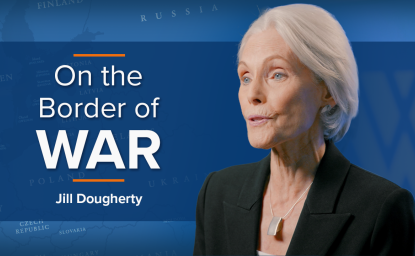In recent years, differing opinions over the war in Iraq, the Kyoto Protocol, and the International Criminal Court are among the serious issues that have strained U.S.-European relations. Such divisions raise questions about the stability and future of zones of peace such as the Atlantic community, the foundation for Wilson Center Fellow Charles Kupchan's current research.
"How and when do sovereign states set aside geopolitical rivalry and deem war unthinkable?" Kupchan questioned. "How does a group of countries arrive at stable and friendly relations when the norm is militancy and contests for primacy?"
The first time European powers united and agreed on a cooperative international order was following the defeat of Napoleonic France in 1815, he said, and there was peace until the 1850s when the region fell victim to the Crimean War. Today, there is a common European identity and kinship among the nations of the European Union even while each of them struggles to retain their individual, national identities. At present, though, a re-nationalization of political life is occurring in Europe. Kupchan is considering how to ensure the EU and the transatlantic community do not unravel, but instead endure and serve as models for other regions.
A central theme in Kupchan's research is cultural affinity. He said forming shared identities among nations is important so that the parties consider themselves a united "we" rather than a divided "us-them." He also examines the bonds among nations that are often motivated by external threat. "Rapprochement is often motivated by strategic necessity, often by external or internal threat," he said. In the early stages, a nation indicates to another the desire to retreat from rivalry and offers a concession, usually a costly one. "Such concessions constitute a peace offering," Kupchan said, "jump starting the process of reconciliation."
"Zones of peace are more durable when they consist of democracies," Kupchan said. "Liberal democracies are important to completing the process, to locking in a long-term friendship. However, democracy is not a necessity to get the ball rolling." Various mechanisms can help forge close and trusting relationships between states, he said, from repeated political concessions to social integration.
"Generally, liberal democracies are more welcoming of integration because they are more open and flexible. Non-democracies fear that integration with other states could threaten regime stability."
Nonetheless, non-democracies sometimes build tight partnerships. In the mid-1950s, the Soviet Union and China closely cooperated on a range of military and economic issues until relations collapsed in the early 1960s. Another example of rapprochement among non-democracies is Argentina and Brazil in the late 1970s and early 1980s. Military juntas were running these countries but each made key peace offers, said Kupchan. In other cases, democracy played a more important role in inducing peace, such as Sweden and Norway, and the United States and United Kingdom.
"Even when democracies enjoy stable peace," said Kupchan, they can't be confident it's there for good." Could the United States and Europe again bear arms against each other? Helping to avoid that outcome is part of Kupchan's motivation for his project.


